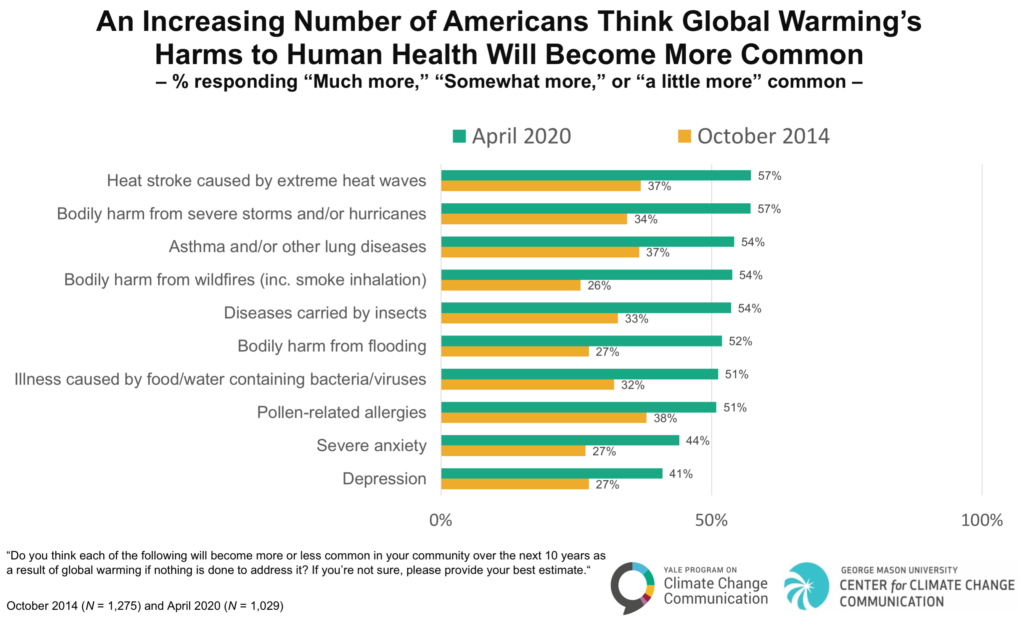Climate Note · Jun 16, 2020
Americans increasingly understand that climate change harms human health
By John Kotcher, Edward Maibach, Seth Rosenthal, Abel Gustafson and Anthony Leiserowitz
Filed under: Beliefs & Attitudes

The U.S. National Climate Assessment conducted in 2018 concluded that climate change is already harming people and communities across America. For many Americans, the most personally relevant climate impacts are the significant risks it poses to their health. As the climate continues to warm, these health harms are becoming more frequent, severe, and widespread.
In October 2014, we found that relatively few Americans had thought about, or were aware of the different health consequences of climate change. However, in our most recent survey – conducted in April 2020 – we found that a much larger proportion of Americans now think a number of health harms will become more common in their community over the next ten years as a result of global warming.
For example, the percentage of Americans who say bodily harm from wildfires will become more common in their community as a result of global warming has doubled since October 2014, increasing by 28 percentage points. In fact, we found that majorities of Americans now think that most of the health impacts identified in the U.S. National Climate Assessment will soon become more common in their communities due to global warming – with mental health conditions, specifically depression and severe anxiety, as the only exceptions. Further, even though fewer than half of Americans think mental health impacts will soon become more common in their community as a result of global warming, the number of people that do think this has increased substantially since October 2014 (+14 percentage points for depression; +17 percentage points for severe anxiety).
A core principle of public health is to ensure that people are informed about threats to their health and wellbeing. Previous research suggests that raising public awareness of health impacts can increase public engagement with the issue of climate change. Efforts to mobilize our nation’s health professionals to explain the health harms of climate change, such as those by the Medical Society Consortium on Climate and Health, can help Americans make informed decisions that will help protect their health in the years to come.
Methods
These data were produced from two waves of the Climate Change in the American Mind survey – a nationally-representative survey of public opinion on climate change in the United States conducted by the Yale Program on Climate Change Communication and the George Mason University Center for Climate Change Communication. Surveys were conducted in October 2014 (N = 1,275) and April 2020 (N = 1,029) using the Ipsos (formerly GfK) KnowledgePanel®, a representative online panel of U.S. adults (18+). All questionnaires were self-administered by respondents in a web-based environment.
Percentage values are weighted to align with U.S. Census demographic parameters. For tabulation purposes, percentage points are rounded to the nearest whole number. The margin of error is +/- 3 percentage points at the 95% confidence level.
